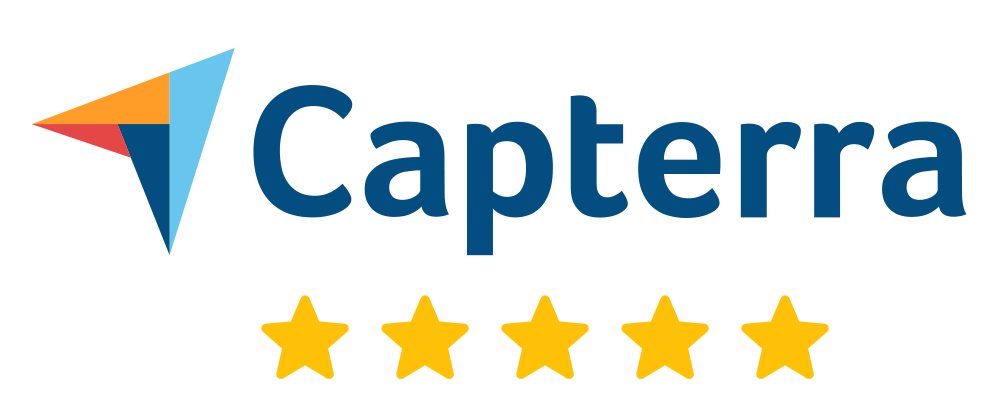Frequently Asked Questions


Rated a Top Talent Assessment Company
General
Yes. A written or online assessment test is not that much different from a verbal test in an interview. Both a written question and a verbal question can be legal or illegal. If pre-employment assessments in general were illegal, you wouldn’t see 80% of all companies big and small using them in this litigation prone environment. After 26 years and hundreds of thousands of assessments having been completed, we have never had a legal or government problem with the The Hire Talents Assessments.
Pre-employment testing costs only a fraction of what you stand to make by hiring the right people. Our pricing depends on three things: 1. The size of your organization or how much you intend to use; the more you use the lower the price. 2. We offer test packages ranging from 10 to 1,000 tests, with each offering special pricing discounts 3. The types of assessments or tests you want to use. The more in-depth the test, the more it will cost. You can pay per test, buy a bundle, or pay for a yearly subscription and have unlimited use.
If you contact us with an idea of what you want, we can give you a rough estimate.
Great question! We think custom baselines are such a good idea that we offer complimentary benchmarking for your team. If you have a top and underperforming associate that you want to compare, we would encourage you to test them both to see how they differ, as benchmarking can help you see how accurately the assessment tests measure your people. Although we have standard baselines for all basic job positions, we can also customize the profiles of your top performers to predict a candidate’s success.
Both the Sales, People & Logic and IC People and Logic Ability assessments keep track of the time it takes a candidate to complete. Time is factored into the overall score on these assessments as well, but we do not cut candidates off at a certain time point. Below are the following skill tests that both keep track of time and factor it into the overall score:
- Detail Test
- Logic Test
- Supervisor Test
- Basic Sales Test
- Product Sales Test
- Simple Math Test
- Hard Math Test
- Writing Test
Our Telemarketing Test, Easy Math Test, and Reading Test also keep track of the time and list it on the report, but do not factor time into the overall score.
Skill tests usually take 20 minutes or less, ability tests take 30-45 minutes and aptitude profiles take 35-60 minutes.
Our assessments are flexible enough that they can be taken anywhere a candidate has access to the internet. Keep in mind that assessments taken at your place of business helps to prevent candidates from being distracted or getting help with questions, which produce the best possible result, typically.
Over the past two decades, the use of pre-employment testing has grown. Today it is estimated at least 80% of US companies are utilizing pre-employment testing of some kind. The ability for assessments to objectively measure a large variety of candidate qualities helps employers set objective benchmarks to qualify candidates.
We have been using assessments for leadership consulting and pre-employment screening since 1986. We have completed tens of thousands of assessments for our clients.
Reliability and Validity Questions
Personality testing is subject to many potential inaccuracies. That is why we have designed our assessments to measure the accuracy of candidates answers. We judge consistency, exaggeration, and candidate honesty. Additionally, we combine our personality assessments with attitude and Emotional competency measurements to get a complete picture of how a candidate will fit into any organization.
We are committed to continuous research and validation of our assessments. We conduct research on every candidate hired using our assessments. After at least 6 months of being hired we conduct surveys with direct supervisors and upper management to find out how a candidate performed in real life. For more info see the research and development page.
Our extensive research on how candidates perform after being hired in a position after 5-12 months is proven when candidates have the right attitude, personality and competencies. When candidates show poor results in certain areas, we have consistently seen them fail or perform poorly. We can safely predict how candidates perform because we have validated how the results correlate to their actual performance.
This is a major issue with most assessments on the market today. Most rely on the applicant filling out the questions honestly and consistently. We attack this issue in several ways: Embedded lie questions: Determine the honesty level of a candidate in all of our assessments. Multi Trait questions: Many of our questions measure more than one quality. Because the questions are not just the same question worded differently, we can accurately determine a candidate’s consistency and measure exaggeration Consistency Questions: Determine if a candidate is trying to trick the assessment. These questions also indicate reading comprehension issues. Exaggeration: It is natural for people to try to put their best foot forward when interviewing. Our assessments detect these slight and extreme exaggerations and the results are adjusted accordingly. Some people go in the opposite direction and are very humble or extremely honest, we adjust scores for these people as well.
Customer Support Questions
We believe both play an important role in the recruiting process. For every trait we measure, we offer a list of interview questions available at the click of a mouse. We are also hiring experts so we can assist in resume screening techniques and help improve a client’s recruiting process.
This varies on a company’s needs. The approach can vary from assessing every qualified applicant to only the top potentials. Different approaches can be used from basic skill testing to in depth profiling. We help our clients find the right mix of tests to get them the results they need.
We are always available during normal business hours to help clients get the most from their results. We can often give insight on how certain results have predicted certain behaviors in past candidates or how to better interview for qualities that may be in question. We do not charge for this added service in fact we encourage it.
“IC” stands for “Individual Contributor” and is best suited to test candidates who are in roles with individual contribution more so than a management or leadership role. The “SL” stands for “Sales and Leadership” and is best used for candidates who are in sales roles or high-level positions, managing and leading others.
We do our very best to maintain a quick turnaround time on assessment results.
For any in-depth assessment or basic skill test, you can expect to receive your candidate’s assessment results immediately after they have been completed.
For any interactive test results, we will manually upload those within 1 hour of completion, Monday through Friday, between the hours of 8 am to 5 pm PST, though we usually return them much sooner than that.
Weekend Results If an interactive skill test is completed over the weekend, we will have them uploaded within 1 hour from 8 am PST on Monday morning. You will receive an email notification that your tests are now available for download. They will also be attached to that notification email.
Unfortunately, we don’t share the questions on our assessments (for proprietary reasons) and we cannot share the answers either. Many of the traits, and therefore questions, are connected to others on the assessment, so it would be difficult to pinpoint the reasoning for one incorrect answer without examining all of the others that relate to it as well. Ultimately, we don’t share candidate answers to avoid misinterpretation of the results. We understand the disappointment of meeting with what seemed like a great candidate who turns out to test poorly on the assessments. We recommend spending some time with us reviewing these results to help clarify any questions you might have.
Yes! If you click on many of the traits in the PDF report, you will be taken to that trait page where there are supplemental interview questions to help you flesh out any concerns you might have with the way the candidate scored on that trait.
Dishonesty is measured throughout in the way the candidate answers the questions. We ask things like “If I do not understand what a person says, I sometimes pretend as if I do.” And if the candidate answers true to this and several questions like this, we can conclude that they believe being dishonest at times/sometimes/most times is okay. This will reflect in high dishonesty/low personal honesty scores. For Accuracy, we’re measuring a few things. In order to conclude that the test is accurate, we want to see honesty and consistency in the way the candidate filled out the assessments. If there are red flags on either one of those items, we can draw the conclusion that the accuracy of the test results are compromised. Answering questions in an exaggerated manner indicates ‘always’ and ‘never’ thinking. Coupled with high scores on dishonesty, borderline personal honesty, and a 0 on assessment honesty indicates that the accuracy of the results are questionable because we can’t really tell if a candidate’s answers are true for them or if they are trying to present themselves a certain way. When we see exaggeration, this is often the case. Candidates know they’re taking a test for a job and want to “do well” so they may exaggerate what they think we want to see on the results. Well, the test picks up on that so it doesn’t help them after all.

